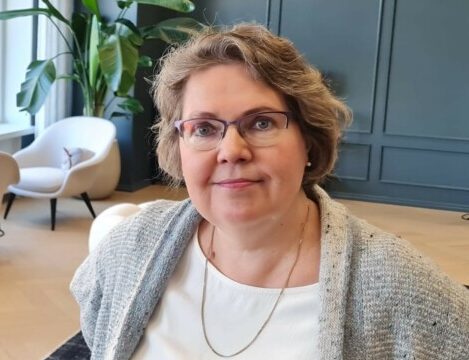On the customer’s perspective, needs are multidimensional especially in the complex field of social and healthcare.
Customer needs require attention from multi-professional teams of experts and managing work includes also the need of taking multiple factors into consideration. In the changing organizational environment actors involved are changing, environmental factors are causing stress to decision making and customer’s needs are both individual and depended on multiple interrelated factors. Still, no matter of the changes in the surroundings, organizational goals stay the same to produce top quality products or services with cost effective way at the same time pushing the quality and effectiveness of the work procedures.
Demands are tough. How to manage growing challenges in the area of job satisfaction, service and product delivery and within the multidimensional work processes?
Answers could be found from the employees and customers. Feedback is usually voluntary and only given when somethings in the chain of services is really out of place. Feedback might not be as constructive as hoped in order to utilize its suggestions into action or demands lack the necessary perspectives to be taken seriously into consideration. Lack of feedback and discussion applies both customers and employees. Development of the organizational structures, processes or services gets harder without existing dialog between the included parties.
Dialog builds understanding and supports organizational learning. Especially in the multi-professional organizations and complex organizational environments, organizational effectiveness is said to improve when skills, practices and expertise are being shared within the whole staff. Diversity builds the knowledge base of the community and brings different opinions and insights into consideration. Shared knowledge includes that specific skillset and tacit knowledge that is controlled only by few inside the organization. With open dialog employees are able to learn from each other and recognize vital bottlenecks within the procedures and processes of the work. Open dialog is a way of creating knowledge. But creativity requires also the willingness and desire of producing something new and better, it requires the promise of development.
Deliberative organizational jury as a participative organization development method brings people together and includes the necessary support from the management to the whole development process. Deliberative organizational jury is based on the theory of deliberative democracy and it takes into consideration the opinions, visions and insights of the whole staff, not forgetting the important voice of the customers. Method offers friendly environment for participants to build their common knowledge and understanding through multi-professional and interdisciplinary discussions. Vital information is offered both inside and outside organization and the goal is set to produce best possible practices and decisions for the organization to be performing efficiently and to be prepared for the future challenges. Method’s creativity lies in the collaboration of the multidisciplinary people from different professional backgrounds all working for the common goal. Success lies within the diversity, people just have to be connect
Deliberative organizational jury, Terveysdynamo was last put into practice during spring time 2017 in Tampere University Hospital’s Child Psychiatric, where wide group participants successfully created variety of suggestions for their clinic to flourish. Participants met each other face-to-face and online for a month, shared knowledge and created development plan for the organization. Suggestions were created based on their insights, vision and expertise. Development is an ongoing process, but the second and crucial part of the project is the implementation of the development plan created by the people.
Tomi Niemi
Doctoral Student
Social and Health Management
University of Vaasa



